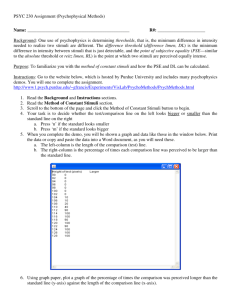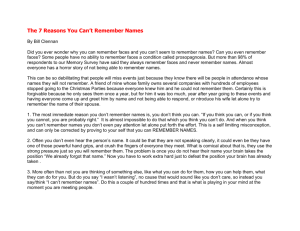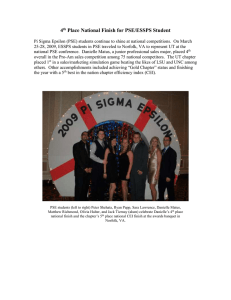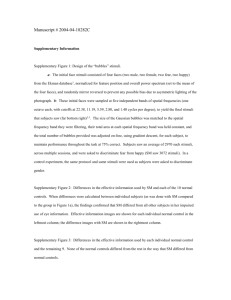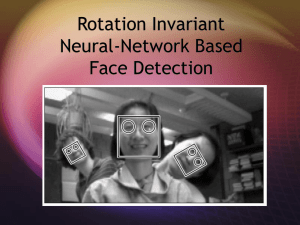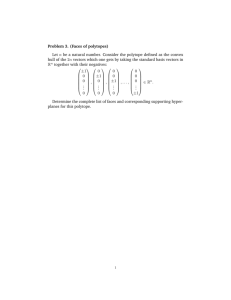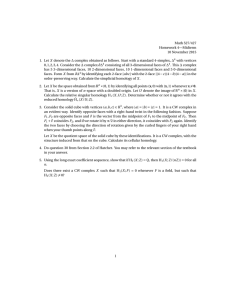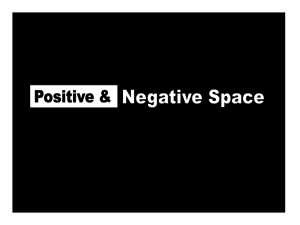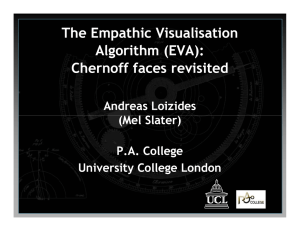abstract
advertisement
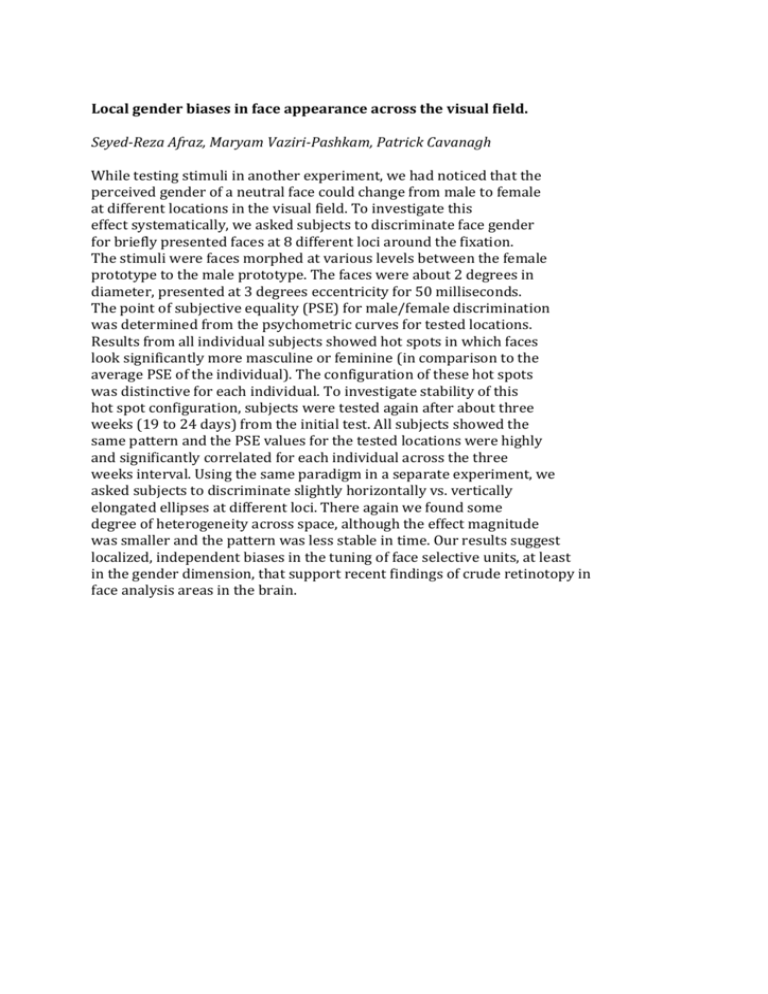
Local gender biases in face appearance across the visual field. Seyed-Reza Afraz, Maryam Vaziri-Pashkam, Patrick Cavanagh While testing stimuli in another experiment, we had noticed that the perceived gender of a neutral face could change from male to female at different locations in the visual field. To investigate this effect systematically, we asked subjects to discriminate face gender for briefly presented faces at 8 different loci around the fixation. The stimuli were faces morphed at various levels between the female prototype to the male prototype. The faces were about 2 degrees in diameter, presented at 3 degrees eccentricity for 50 milliseconds. The point of subjective equality (PSE) for male/female discrimination was determined from the psychometric curves for tested locations. Results from all individual subjects showed hot spots in which faces look significantly more masculine or feminine (in comparison to the average PSE of the individual). The configuration of these hot spots was distinctive for each individual. To investigate stability of this hot spot configuration, subjects were tested again after about three weeks (19 to 24 days) from the initial test. All subjects showed the same pattern and the PSE values for the tested locations were highly and significantly correlated for each individual across the three weeks interval. Using the same paradigm in a separate experiment, we asked subjects to discriminate slightly horizontally vs. vertically elongated ellipses at different loci. There again we found some degree of heterogeneity across space, although the effect magnitude was smaller and the pattern was less stable in time. Our results suggest localized, independent biases in the tuning of face selective units, at least in the gender dimension, that support recent findings of crude retinotopy in face analysis areas in the brain.
